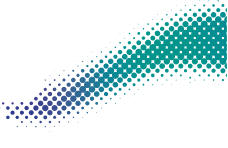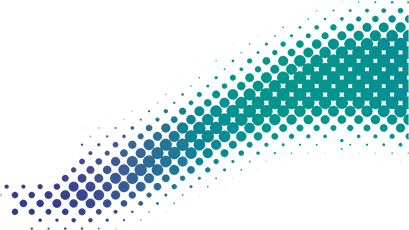Hak Cipta © Petroliam Nasional Berhad (PETRONAS)(20076-K).
Hak Cipta Terpelihara.
- PETRONAS 50
- Tekad Kami
- Kemampanan
-
Memajukan Tenaga
- Umum
- Eksplorasi
- Pembangunan & Pengeluaran
- Pengurusan Petroleum Malaysia
- Penapisan
- Bahan Kimia
- Pengurusan Karbon
- Pemasaran, Perdagangan & Peruncitan
- Peniagaan Gas
- Gas Asli Cecair (LNG)
- Gas & Tenaga
- Innovation Gateway @ PETRONAS (iG@P)
- PETRONAS Ventures
- Penyelesaian Teknikal
- SEEd.Lab
- Pembangunan Bakat & Pendidikan
- PING
- Minyak Pelincir
- Hubungan Pelaburan
- Cerita Kami

Kuala Lumpur, 26 February 2020 – Amid challenging market conditions with continued pressure on commodity prices and margins, PETRONAS reported lower earnings for the financial year ended 31 December 2019. The results were impacted by lower revenue and net impairment on assets, but mitigated by the outcome of our continued efforts in maintaining fiscal discipline and operational excellence.
PETRONAS’ revenue slipped by 4 per cent to RM240.3 billion compared to RM251.0 billion in the previous financial year, mainly due to lower average realised prices for major products. The decrease was partially offset by the impact of higher sales volume, mainly for petroleum products and LNG coupled with the effect of the weakening of the Ringgit against US Dollar exchange rate.
Profit After Tax (PAT) for the financial year ended 31 December 2019 stood at RM40.5 billion, 27 per cent lower than the RM55.3 billion posted in the previous year, primarily due to lower revenue as well as net impairment on assets amounting to RM7.3 billion. However, these were partially offset by lower tax expenses.
Excluding the impact of impairment, our PAT for 2019 stood at RM47.8 billion, which was a 6 per cent reduction from 2018.
Cumulative Earnings Before Interest, Tax, Depreciation and Amortisation (EBITDA) for 2019 was at RM96.3 billion, a decrease of 17 per cent from RM116.5 billion in the previous corresponding period, in line with lower Profit Before Tax (PBT).
Total assets were recorded at RM622.4 billion as at 31 December 2019, compared to RM636.3 billion recorded as at 31 December 2018.
Shareholders’ equity increased to RM389.1 billion as at 31 December 2019, as compared to RM380.5 billion in 2018, attributed mainly to the profit generated during the year, partially offset by the final dividend declared for financial year ended 31 December 2018.
Return on Average Capital Employed (ROACE) decreased to 8.7 per cent compared to 12.0 per cent in 2018, in line with lower profit recorded.
Gearing ratio slightly decreased to 19.4 per cent as at 31 December 2019, compared to 19.7 per cent in the previous corresponding year, mainly due to lower borrowings following the repayment of loans.
The Group was able to sustain healthy levels of Cash Flow From Operations as well as Free Cash Flows, despite the softer results. Cash Flow From Operations increased by 5 per cent from the same period in 2018, while Free Cash Flows saw an increase of 9 per cent. This demonstrates the Group’s resilience, fiscal discipline and underscored our efforts in improving operational excellence. Capital investments for the year in review, amounting to RM47.8 billion, were mainly attributed to Upstream, Gas & New Energy and Downstream projects.
For the fourth quarter of 2019, the Group recorded revenue of RM64.0 billion, 8 per cent lower compared to RM69.9 billion in the fourth quarter of 2018, mainly due to lower average realised prices for major products. This was, however, partially offset by the impact of higher sales volume, mainly for petroleum products and crude oil and condensates.
PAT stood at RM4.1 billion, down 71 per cent from RM14.3 billion in the fourth quarter of 2018, primarily due to net impairment on assets and lower revenue, partially offset by lower tax expenses.
Excluding the impact of impairment, our PAT stood at RM9.2 billion, which is a 14 per cent reduction as compared to the fourth quarter of 2018.
EBITDA was at RM22.7 billion, a decrease of 39 per cent compared to RM37.3 billion in the fourth quarter of 2018, in line with lower PBT.
Capital investments for the fourth quarter of 2019, amounted to RM18.8 billion, attributed to Upstream, Gas & New Energy and Downstream projects.
Outlook
The outlook of the oil and gas industry remains bearish, given the ongoing geopolitical uncertainties, prolonged trade tensions and near-term demand disruptions due to COVID-19 outbreak. Notwithstanding these challenges, PETRONAS will continue to deliver operational excellence and growth strategies. The Board expects the financial performance for 2020 to be affected by these factors.
Tan Sri Wan Zulkiflee Wan Ariffin, President and Group Chief Executive Officer, PETRONAS
The year remained difficult as the industry continued to be marred by consistent and prolonged volatility. Against this challenging landscape, PETRONAS has shown strong resiliency through its operational and financial performance for 2019.
Our progress and achievements in pursuing our three-pronged strategy demonstrate our perseverance and robustness as an integrated energy company.
Looking ahead, market volatility is expected to persist. We will remain steadfast in executing our strategies and sustaining our operational efficiencies while maintaining fiscal discipline. Our priority remains towards our commitment to deliver value to our stakeholders and ensuring PETRONAS’ long-term sustainability as we transition to a lower carbon future.
Issued by
Media Engagement Department
Group Strategic Communications
PETRONAS
Operational Highlights
Upstream
- Total production volume for the year was 2,406 thousand barrels of oil equivalent (boe) per day, above the 2,361 thousand boe per day in 2018, mainly due to higher liquid production primarily from the newly acquired blocks in Brazil and higher natural gas production from Malaysia.
- A total of 35 projects achieved first hydrocarbon, adding 62 thousand boe per day of new production for the year, comprising 30 Brownfields in Peninsular Malaysia, Sarawak, Iraq, Myanmar and South Sudan, as well as five Greenfields – three in Sarawak, one in Indonesia and one Unconventional project in Argentina.
- PETRONAS made 11 exploration discoveries during the year - seven in Malaysia and four internationally in Indonesia and Egypt, including two significant gas discoveries in SK410B Lang Lebah field, offshore Sarawak and in the Sakakemang Block, South Sumatra, Indonesia.
- A total of 47 projects comprising 42 projects in Malaysia and five international projects achieved Final Investment Decision (FID) including Kasawari, a major gas development offshore Sarawak.
- PETRONAS completed the Plugging & Abandonment of 28 wells in Malaysia, achieving 40 per cent lower than benchmark cost, in line with cost optimisation efforts undertaken across its businesses.
- Six new Production Sharing Contracts (PSCs) were awarded this year in Malaysia; further strengthening PETRONAS’ position in its ventures in the country.
- PETRONAS made 10 acquisitions of offshore blocks, five in Brazil located in the Campos Basin,two blocks of North Sidi Gaber and North El Fanar in Egypt, two blocks of F12 and F13 in Gabon and the Andaman III Working Area in Indonesia.This is in line with PETRONAS’ global growth strategy.
- On 19 August 2019, PETRONAS Carigali Sdn Bhd’s (PCSB) subsidiary, Vestigo Petroleum Sdn Bhd (Vestigo), successfully removed a suction pile wellhead platform from the Ophir field, relocated and re-installed it at the Jitang field, offshore Malaysia. The successful relocation of the wellhead platform in one piece without any further structural modifications, was the first in the world and was accomplished within a record-breaking time of three days.
- On 10 October 2019, PETRONAS’ subsidiary, PETRONAS Petróleo Brasil Ltda. (PPBL) successfully won three exploration blocks during Brazil’s exploration blocks bid round. PPBL is the operator for Blocks CM 661 and CM 715 with 100 per cent equity, and holds 20 per cent equity in Block CM 541. On 28 December 2019, PPBL announced the completion of the transaction for the acquisition of 50 per cent equity in the Tartaruga Verde producing field (BM-C-36 Concession) and Module III of the Espadarte field (Espadarte Concession), offshore Brazil. This goes further towards strengthening and developing PETRONAS’ ventures in the Americas as the Company diversifies and expands its oil business portfolio in the region.
Gas & New Energy
- Total LNG sales volume for the year was 5.9 per cent higher at 30.6 million metric tonnes as compared to 28.9 million metric tonnes in 2018, mainly attributed to higher production volume from PETRONAS LNG Complex (PLC) in Bintulu.
- LNG production for the year remained strong with an increment of 5.0 per cent at 28.1 million metric tonnes as compared to 26.7 million metric tonnes in 2018, contributed by higher feedgas supply and stable plant performance.
- Malaysian average sales gas volume for the year increased by 4.0 per cent at 2,887 mmscfd, mainly attributed to higher demand.
- Overall Equipment Effectiveness (OEE) for Gas & New Energy business stood at 97.1 per cent across all business segments with LNG assets and domestic operations recording an OEE of 96.6 per cent and 99.3 per cent respectively.
- As of 31 December 2019, ten LNG cargoes have been loaded after the successful relocation of PFLNG Satu, the world’s first Floating LNG Production Unit to Kebabangan gas field in Sabah from Kanowit, Sarawak.
- PETRONAS' second floating LNG vessel was named as ‘PFLNG Dua’ at a ceremony held at the Samsung Heavy Industries Shipyard in Geoje Island, South Korea on 27 November 2019. The PFLNG Dua is a deepwater LNG production unit with a capacity of 1.5 million tonnes per annum. The vessel sailed away on 18 February 2020, from Geoje Island to the Rotan gas field, 140 km offshore Kota Kinabalu, Sabah.
- PETRONAS Gas Berhad (PGB) continues to strengthen its gas market growth via the sales agreement with Polyplastics Asia Pacific Sdn Bhd (PAP) for the supply of steam and extension of current electricity supply for 22 years.
- Demonstrating PETRONAS’ position as a progressive LNG solutions partner focusing on customer-centricity across the value chain, Gas & New Energy business has successfully performed eight Gassing Up Cooling Down (GUCD) services at the Pengerang Regasification Terminal (RGT), to serve warm LNG vessels after ship dry-docking. In addition, PETRONAS has successfully completed four LNG ship-to-ship transfer in Malaysian waters to serve LNG buyers with requirements for smaller LNG parcels.
- The gas business’ Virtual Pipeline System (VPS) achieved its FID and is expected to start operation in the second half of 2020. As part of the VPS solution, LNG sourced from the Pengerang RGT is set to be transported via trucks to off-grid customers located away from the main pipeline, as well as to small-scale customers. This VPS will complement existing infrastructure of the 2,500km Peninsular Gas Utilisation (PGU) pipeline network as well as the RGTs in both Pengerang, Johor and Sungai Udang, Melaka to better support the growth of the gas industry in Malaysia.
- PETRONAS has also ventured into the area of LNG bunkering via a Time Charter Party (TCP) that was signed in October 2019 with MISC Berhad and Avenir LNG Limited to charter a 7,500 cubic meters of LNG bunkering vessel (LBV). With this, PETRONAS will be one of the pioneers in LNG bunkering solutions in the region, and will be growing our LNG bunkering global network through partnerships with port operators and international industry players. The LBV is capable of providing bunkering services to LNG fueled vessels across Malaysia, and also transporting smaller scale LNG cargoes across the region, complemented by our RGT infrastructure at Pengerang, Johor and Sungai Udang, Melaka.
- PETRONAS is primed to pursue domestic and international renewables market share through the acquisition of a leading Singapore-based company, Amplus Energy Solutions Pte Ltd (M+), with a portfolio of distributed, renewable energy assets in Asia. With a total capacity of 600MW under operation and development, M+ is serving more than 150 commercial and industrial customers at over 200 locations across India and South East Asia. Closer to home, PETRONAS launched its first solar rooftop solutions known as M+ by PETRONAS in November 2019, to strengthen PETRONAS’ presence in Malaysia’s renewable energy space.
Downstream
- Downstream business recorded commendable results despite market volatility and fluctuating prices. Throughout this challenging period, Downstream remained focused in maintaining its operational and commercial excellence while delivering sustainable and innovative solutions.
- Overall Equipment Effectiveness (OEE) recorded a sustained performance of 90.6 per cent across all business segments with domestic refineries recording a slight improvement of 93.2 per cent compared to the same period last year, while the refinery in Durban, South Africa registered OEE of 88.4 per cent.
- PETRONAS Chemicals Group Berhad (PCG) continued to sustain its overall Plant Utilisation above 90 per cent. Backed by strong plant performance and reliability, overall petrochemical production volume recorded 10.4 million metric tonnes, despite operational challenges and lower product spreads. Throughout the year, PCG has actively ventured into innovative customer solutions, expanding its portfolio further, including acquiring the Da Vinci Group B.V. which marks PCG’s entry into specialty chemicals.
- Overall marketing sales volume has consistently grown during the year recording a total sale of 25.4 billion litres, mainly contributed by PETRONAS Dagangan Berhad (PDB). Overall sales volume increased by 5.1 per cent compared to 2018. PDB recently won the prestigious Putra Brand Awards for the 10th consecutive year, and registered its highest sales volume since 2015, attributed by the launch of PETRONAS Primax 95 with Pro-Drive, higher Smartpay sales and growing demand from commercial clients.
- Beyond fuel, PDB is bringing greater convenience to customers through the introduction of ROVR, the first mobile refuelling service in the country. Setel, the first e-payment solution for fuel purchases directly from mobile devices, has since introduced new features including integration of loyalty benefits into the application.
- PETRONAS Lubricants International (PLI) recorded an increased sales volume by 12.4 per cent compared to 2018. Engen Petroleum also recorded an improved sales volume, both in retail and commercial businesses. Recently, Engen was voted again as the coolest Petroleum Brand in South Africa for the 10th consecutive year as well as Favourite Petrol Station for nine straight years.
- Pengerang Integrated Complex (PIC) is now ready to fulfil the increasing market demand for various products ranging from petroleum products to differentiated and specialty chemicals. In September, cargoes of Euro 5 Diesel and Jet fuel achieved its first lifting, while the petrochemical complex saw on-spec Polypropylene (PP), Linear low-density polyethylene (LLDPE) and Ethylene Glycols (EG) being shipped out from its terminal in Pengerang. PIC with robust digital infrastructure as well as cutting edge green technologies is set to raise the game for the Asian Oil and Gas sector.




